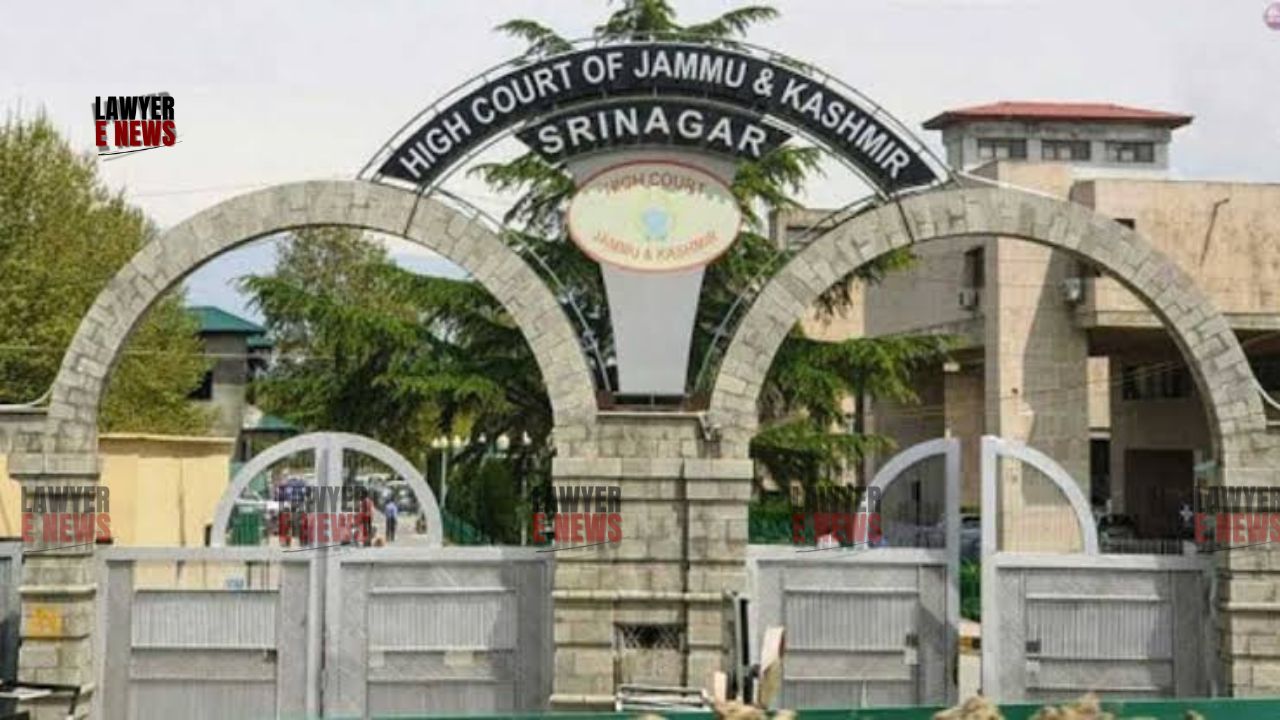-
by Admin
15 February 2026 5:35 AM



High Court dismissed a petition filed under Article 227 of the Indian Constitution, which sought to overturn a trial court’s order denying the petitioners' request to summon additional evidence in a civil suit that has been pending for 18 years. The High Court ruled that the trial court's decision was valid and that the petitioners' attempt to introduce more witnesses was a delaying tactic, not a legitimate effort to produce rebuttal evidence.
The case originated from a suit for Permanent Prohibitory Injunction filed by Late Sh. Rajinder Sharma, the predecessor of the petitioners, seeking to restrain the defendants from interfering with the possession of a sloppy lawn in front of their house. The respondents contested the suit, leading to the framing of several key issues by the Sub-Judge/Special Railway Magistrate, Jammu on 13 March 2023. The case has been ongoing for nearly two decades, with both parties being given ample opportunity to present evidence.
The central issue revolved around the petitioners’ application under Order 16, Rule 1 & 2 of the Code of Civil Procedure to summon a record clerk to present historical court documents from 1972. The petitioners argued that these documents were essential for rebutting the respondents' claim regarding the ownership of the disputed land.
The petitioners contended that their right to lead evidence in rebuttal was not closed and that the trial court's refusal to allow further witness testimony violated their rights. However, the respondents argued that the petitioners had ample opportunities to present their case and that introducing new evidence would further delay proceedings that had already lasted for 18 years.
The High Court, after thoroughly examining the trial court’s order, cited several Supreme Court precedents on the limited scope of Article 227. Referring to Jai Singh v. Municipal Corporation of Delhi (2010) 9 SCC 385, the court reiterated that Article 227 is not meant to correct every legal error or to re-appreciate evidence. The power must be used sparingly, only in cases of grave injustice or jurisdictional error. The court emphasized that it "cannot substitute its own conclusions for the conclusions reached by the lower courts or tribunals."
The High Court also referred to M/S Garment Craft v. Prakash Chand Goel (2022) 4 SCC 181, stressing that supervisory jurisdiction under Article 227 does not allow the High Court to act as an appellate court and reweigh evidence unless the findings of the trial court are perverse or unreasonable.
The court found that the petitioners had already presented rebuttal evidence, and allowing further witnesses at this stage would only delay the conclusion of the case. It agreed with the trial court's finding that the petitioners' application under Order 16, Rule 1 & 2 was an afterthought and a delaying tactic, rather than a genuine attempt to bring forth new evidence.
In dismissing the petition, the High Court reaffirmed that the petitioners had been given sufficient opportunities to present their case, and the 18-year-old suit should not be prolonged further. The court held that the trial court’s rejection of the application was neither perverse nor unreasonable, and there was no jurisdictional error that warranted interference under Article 227.
Date of Decision: 20 August 2024
Smt. Suman Sharma And Others VS Kailashwati
